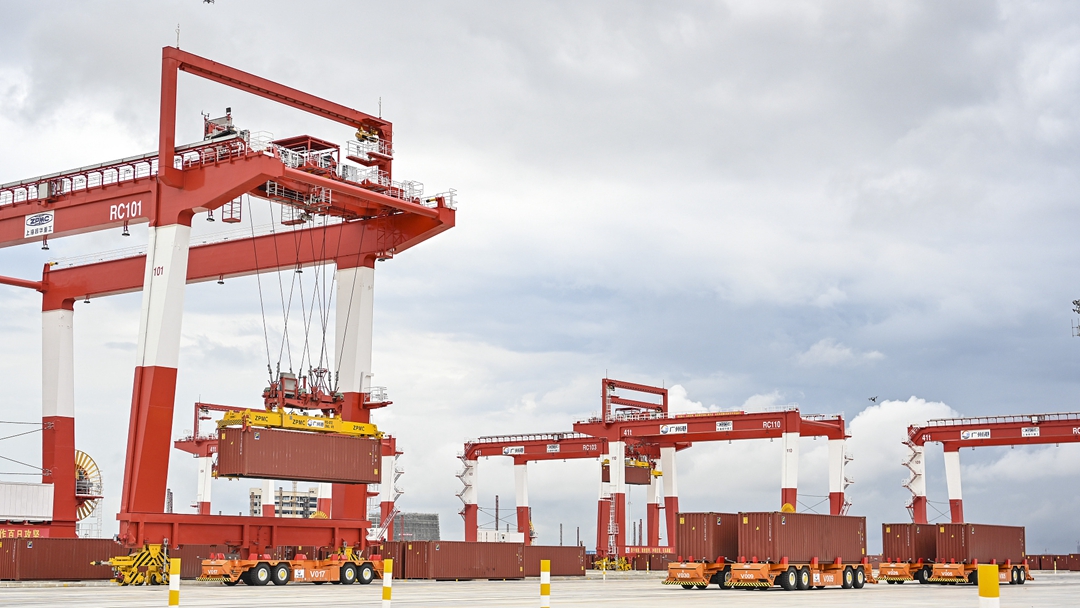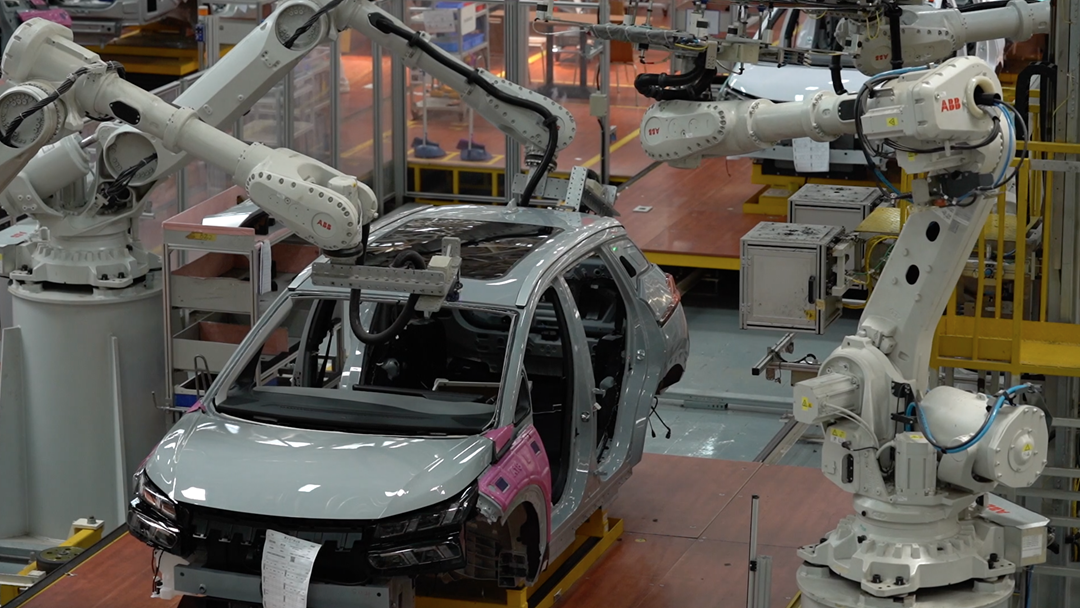02:43

The southern Chinese city of Guangzhou will appoint "supply chain chiefs" to oversee 21 industries it deems high-value, including artificial intelligence, semiconductors and advanced manufacturing.
An expert said that the strategy would help companies to mitigate surging raw material costs, as well as foster closer ties between public and private sectors in the development of key industries.
The trade and manufacturing hub will name top city officials like mayors or secretary of the municipal committee of Communist Party of China as "general chiefs," and leaders of key companies and industry associations as "supply chain owners."
The strategy aims to protect the industries from external shocks such as geopolitical frictions and COVID-19 disruptions.
"High-value industries are vital to the national economy. It affects our jobs and livelihoods," said Tong Shilu, assistant dean at the school of management and economics, the Chinese University of Hong Kong, Shenzhen.
"Due to surging raw material costs in recent months, some companies are struggling. Their troubles could transpire into higher product prices, affecting our everyday consumption," Tong said.
He added that potential solutions may involve dedicated funding to facilitate technological breakthroughs, and handing out crucial raw materials to reduce costs.
"Increasingly, our supply chains are becoming more regional. From manufacturing, logistics to consumption, the line is getting shorter. The goal is to limit our exposure to tariffs, exchange rates, and foreign sanctions," he said.
It's also part of an industrial transformation in China, Tong added.
"We are already seeing some low-value industries moving to lower-cost regions. We need to focus our resources on building a more high-tech and intelligent supply network," he elaborated.
Chip shortage
Guangzhou Automobile's AION, the third-largest electric vehicle brand in China by sales volume, is among many automakers bearing the brunt of the global semiconductor shortage.

Robots assembling an electric car at the GAC AION factory in Guangzhou, July 7, 2021. /CGTN's Huang Yi
Robots assembling an electric car at the GAC AION factory in Guangzhou, July 7, 2021. /CGTN's Huang Yi
"Onboard one of these electric sedans are at least 1,400 microchips. Nailing down supply hasn't been easy," said Xi Zhongmin, deputy general manager of GAC AION New Energy Automobile.
"We used to think we could source everything around the world…but due to the China-U.S. trade war, natural disasters and the pandemic, many car companies have had to close factories or scale back production earlier this year. This is a stark reminder that we have a weak link," Xi said.
Chips are the brains behind the vehicle's every move, from engine control to infotainment and self-driving. Production delays due to the semiconductors shortage was being blamed for a 12.4-percent year-on-year fall in auto sales in China in June.
Guangzhou's "supply chain chief" strategy is an attempt at addressing a lack of self-sufficiency in critical technologies like chips and pushing for upgrades in sectors including new energy, rail transportation, urban agriculture and financial services.
According to the municipal government, the added value of the 21 industries protected by supply chiefs will account for more than 70 percent of Guangzhou's GDP.
In the short term, AION is expecting the chip shortage to last at least another year, with certain microprocessors facing a shortfall of up to 75 percent. Meanwhile surging costs for shipping and raw materials continue to eat away at business profits.
"We still have to survive the next 3-5 years. We still have to work with foreign suppliers," said Xi, who is in charge of technology and procurement at GAC AION new energy automobile.
"Some dealerships both at home and abroad are stockpiling or driving up costs. We hope governments can crack down on behaviors that are harming the industries."
The company says it is investing in dozens of domestic manufacturers to secure chips and batteries. It's calling on the government to give tax cuts and subsidies to empower the industries and develop a national standard for semiconductor manufacturing and testing.

